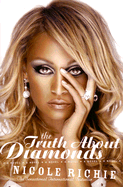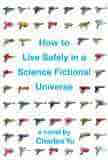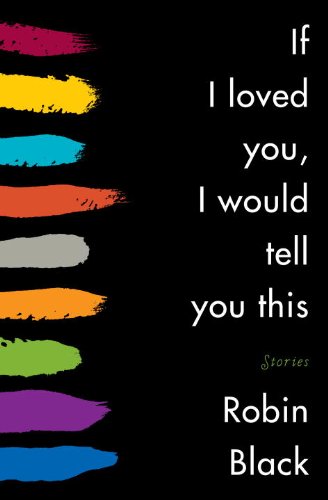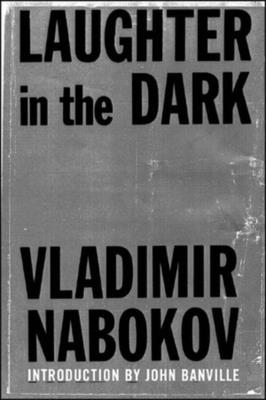 The first thing I heard about The Night Circus was that it was "going to be the next Twilight." Naturally, this made me a bit skeptical, but when I heard the first chapter of the audiobook (narrated by Jim Dale!) at a lovely circus launch party in Concord, Massachusetts (where some of the book is set), I decided to get over my prejudices towards sparkly vampires and give The Night Circus a fair shot.
The first thing I heard about The Night Circus was that it was "going to be the next Twilight." Naturally, this made me a bit skeptical, but when I heard the first chapter of the audiobook (narrated by Jim Dale!) at a lovely circus launch party in Concord, Massachusetts (where some of the book is set), I decided to get over my prejudices towards sparkly vampires and give The Night Circus a fair shot.And you know what? It was good.
It wasn't great by any means, but I certainly enjoyed it. From the first chapter (both reading and hearing), I found myself swept up in the magnificent imagery of the story, and its sprawling, magical nature. First-time author Erin Morgenstern fills her story with charming characters, tortured and macabre and beautiful, and does a very good job of creating the world of this supernatural traveling circus at the turn of the 20th century.
Except when she doesn't.
Morgenstern's descriptions of the magical goings-on in each circus tents is mesmerizing — I can already hear the fans crying out about how the upcoming film doesn't do justice to the Ice Room, or the Wishing Tree, or the White Bonfire, as they appeared in the readers' heads — but she seems to focus so heavily on these descriptions that she neglects to fill in the details of the story. The book jacket describes it as a duel to the death between two apprentice magicians (the magic kind; not the hats-in-rabbits kind) who ultimately fall in love. That's there, I guess, but at no point in the book is there ever any sense of stakes, or drama. Sure, you get told that there's this mysterious "competition," and that there are "rules" and "players" that must remain secret until they are revealed. But other than that, it's just fanciful descriptions of magical midnight dinner parties (which, for the record, I quite enjoyed). The sense of mystery and intrigue that surrounds the story makes you want to keep reading, and the pretty imagery satisfies you for a while, but unfortunately, that's not enough to live on.
Rating
The Night Circus, by Erin Morgenstern
Story: 5.8
Somewhere in here, there is a beautiful, timeless story of two unwitting pawns bound by their lineage into an ancient struggle between good and evil, who try to overcome these forces in the name of love. Unfortunately, by the time that Morgenstern really gets into this Romeo & Juliet story, it's already too late. There seems to be some great history and story between Prospero The Enchanter, and the elusive Man In The Grey Suit — but it never really goes anywhere, and we never get much explanation for, well, anything. (It is, however, quite enjoyable to read about Poppet & Widget, the twins born in the circus on opening night, and their friendship with lonely farmboy Bailey. Maybe that should have been the A-Plot)
Style: 7.8
The style here is what saves The Night Circus. Chapters hardly ran more than five pages, and successive chapters focused on different characters, often in a nonlinear fashion. By jumping between time and character, Morgenstern is able to set up a captivating puzzle that, while simple enough to follow, still makes you want to read more. With such short chapters, I found myself constantly thinking, "Well, just one chapter more," hoping that I would soon return to one of the more exciting scenes or storylines. I also found it interesting that, barring a few one-page interludes rendered in the 2nd Person, most of the scenes were written in 3rd person present, which helped add to the mysteriously nonlinear suspense. And of course, as I've mentioned several times, Morgenstern creates some wonderful imagery in the story. It's not quite poetry, but it is certainly vivid and rich.
General: 6.3
The Night Circus was certainly an enjoyable read, and I don't doubt that it will be successful as a franchise. And for a first time author — who, if I'm not mistaken, has never had so much as an article or a short story published — it's admirable work. Still, for all its wonderful moments, I couldn't help but feel like something was missing.
Overall: 6.63
 The Truth About Diamonds is the fictional story of
The Truth About Diamonds is the fictional story of 


 Fun & Games serves as a kind of love-letter to LA noir and a wake to its history, embedded deeply in the Hollywood Hills. Swierczynski's excitement for the genre bleeds through his prose with a ferocious, whirlwind, almost ravenous energy that engulfs the reader with no apologies, from the epigraphs (quoted from film noir classics and more) to the biting, cynical criticisms of the film/media/LA industries.
Fun & Games serves as a kind of love-letter to LA noir and a wake to its history, embedded deeply in the Hollywood Hills. Swierczynski's excitement for the genre bleeds through his prose with a ferocious, whirlwind, almost ravenous energy that engulfs the reader with no apologies, from the epigraphs (quoted from film noir classics and more) to the biting, cynical criticisms of the film/media/LA industries.

 Also giant kitties. Rather than waking up as a large insect, Gregor Samsa instead awakens one morning to find that he has been turned into a cat.
Also giant kitties. Rather than waking up as a large insect, Gregor Samsa instead awakens one morning to find that he has been turned into a cat. 


